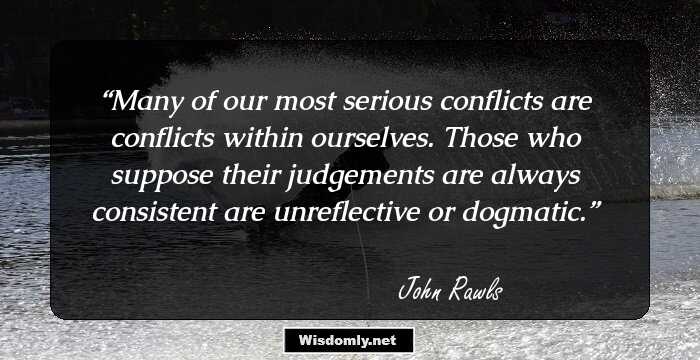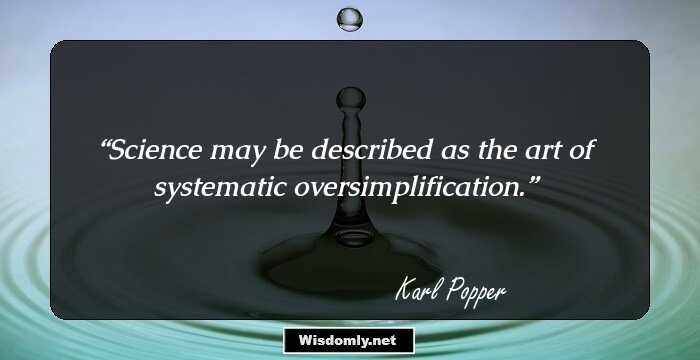31 Great Quotes By George Berkeley For Those Who Are Raring To Go
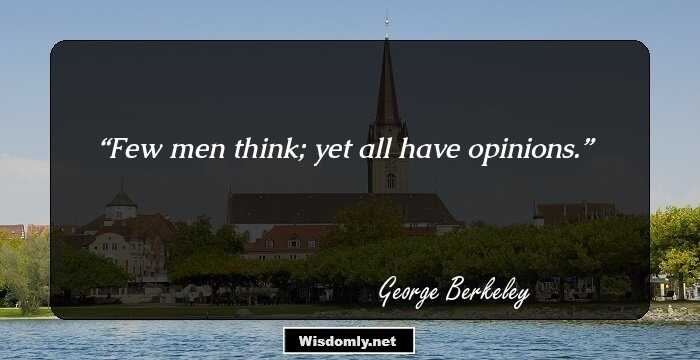
Few men think; yet all have opinions.
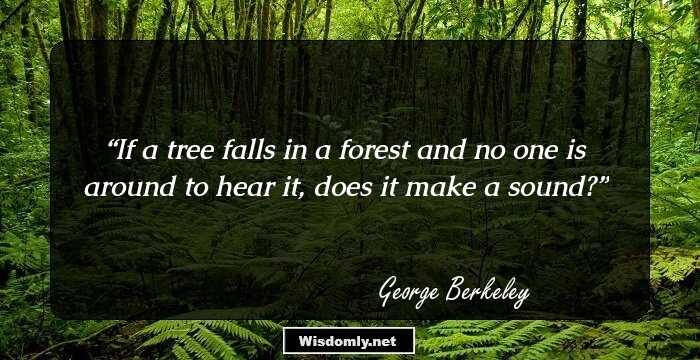
If a tree falls in a forest and no one is around to hear it, does it make a sound?
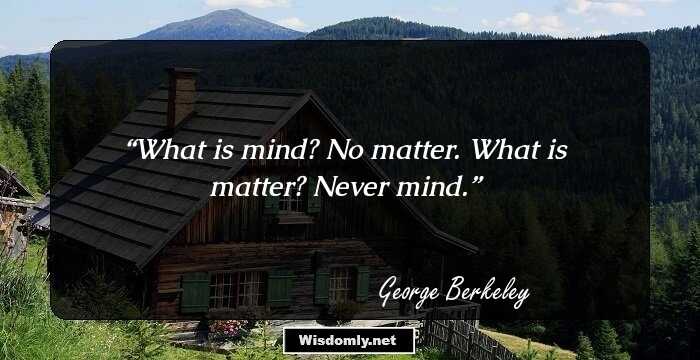
What is mind? No matter. What is matter? Never mind.
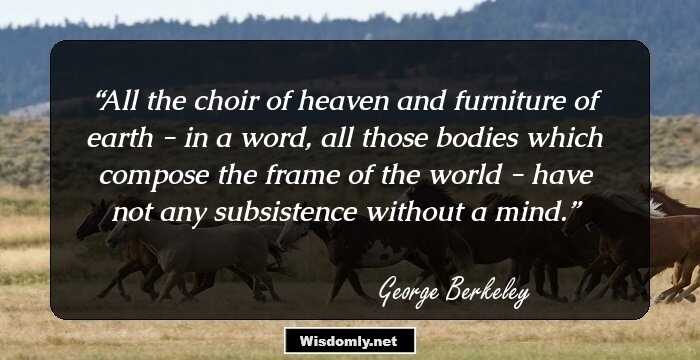
All the choir of heaven and furniture of earth - in a word, all those bodies which compose the frame of the world - have not any subsistence without a mind.
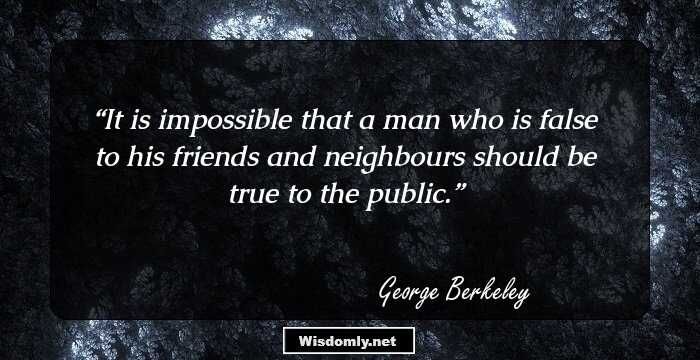
It is impossible that a man who is false to his friends and neighbours should be true to the public.
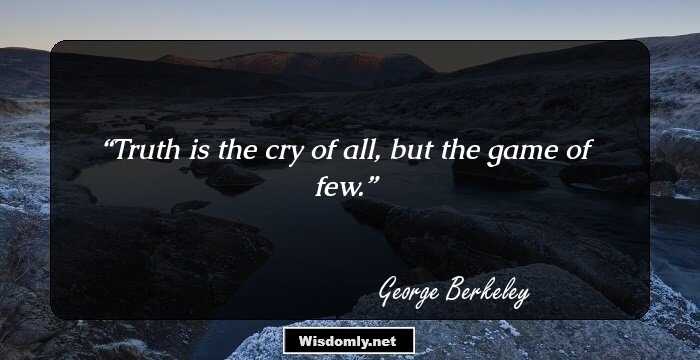
Truth is the cry of all, but the game of few.
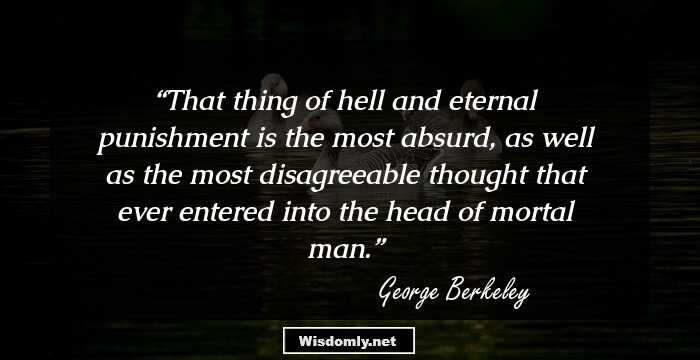
That thing of hell and eternal punishment is the most absurd, as well as the most disagreeable thought that ever entered into the head of mortal man.
That the discovery of this great truth, which lies so near and obvious to the mind, should be attained to by the reason of so veryfew, is a sad instance of the stupidity and inattention of men, who, though they are surrounded with such clear manifestations of the Deity, are yet so little affected by them, that they seem as it were blinded with excess of light.
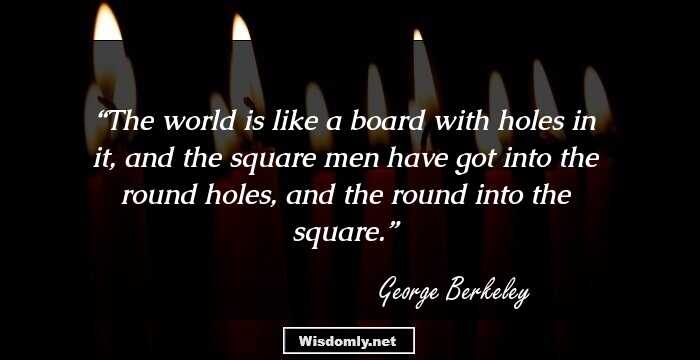
The world is like a board with holes in it, and the square men have got into the round holes, and the round into the square.
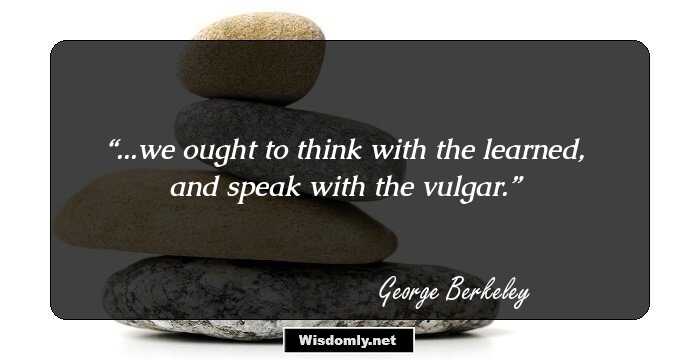
...we ought to think with the learned, and speak with the vulgar.
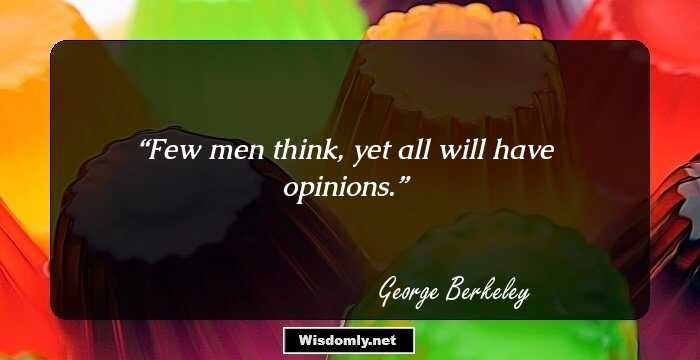
Few men think, yet all will have opinions.
That food nourishes, sleep refreshes, and fire warms us; that to sow in the seed-time is the way to reap in the harvest, and, in general, that to obtain such or such ends, such or such means are conducive, all this we know, not by discovering any necessary connexion between our ideas, but only by the observation of the settled laws of nature, without which we should be all in uncertainty and confusion, and a grown man no more know how to manage himself in the affairs of life than an infant just born.
![The most ingenious men are now agreed, that [universities] are only nurseries of prejudice, corruption, barbarism, and pedantry.](https://www.wisdomly.net/images/quotes/george-berkeley-100055.jpg)
The most ingenious men are now agreed, that [universities] are only nurseries of prejudice, corruption, barbarism, and pedantry.
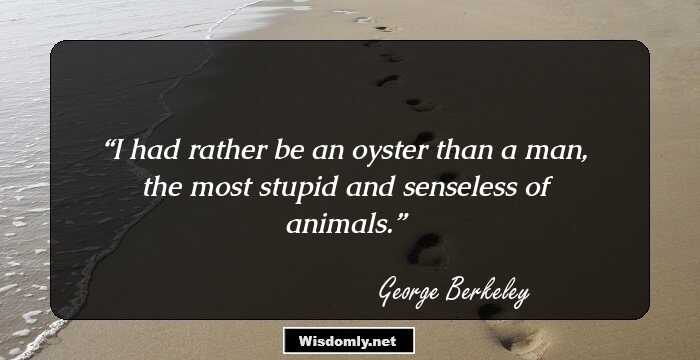
I had rather be an oyster than a man, the most stupid and senseless of animals.
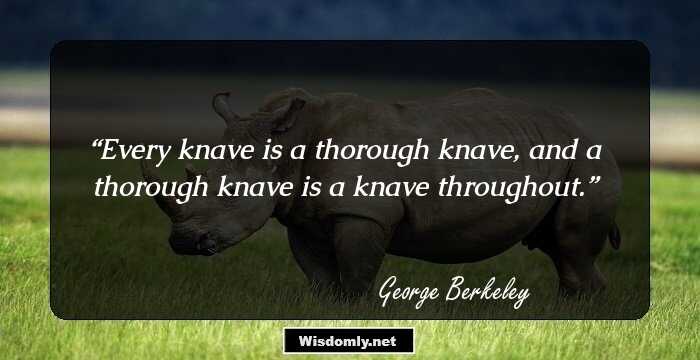
Every knave is a thorough knave, and a thorough knave is a knave throughout.
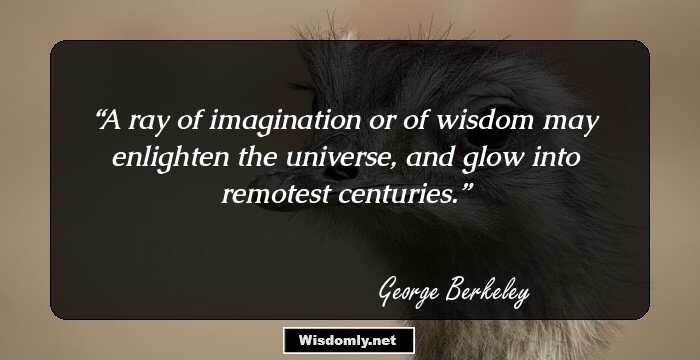
A ray of imagination or of wisdom may enlighten the universe, and glow into remotest centuries.
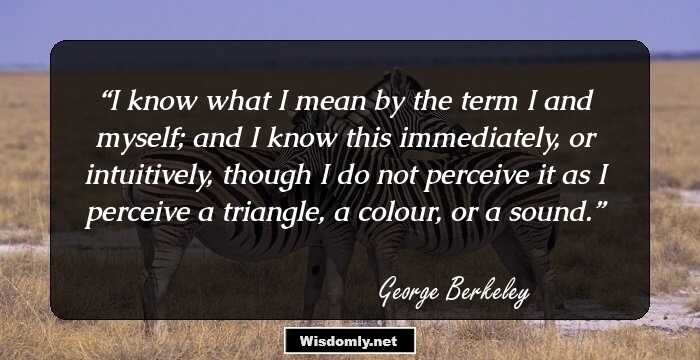
I know what I mean by the term I and myself; and I know this immediately, or intuitively, though I do not perceive it as I perceive a triangle, a colour, or a sound.
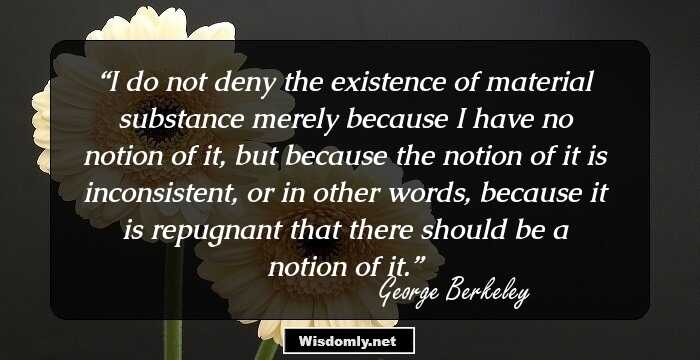
I do not deny the existence of material substance merely because I have no notion of it, but because the notion of it is inconsistent, or in other words, because it is repugnant that there should be a notion of it.
The question between the materialists and me is not, whether things have a real existence out of the mind of this or that person, but whether they have an absolute existence, distinct from being perceived by God, and exterior to all minds.
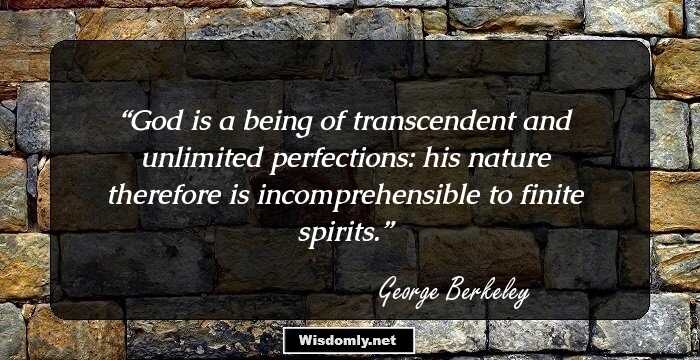
God is a being of transcendent and unlimited perfections: his nature therefore is incomprehensible to finite spirits.
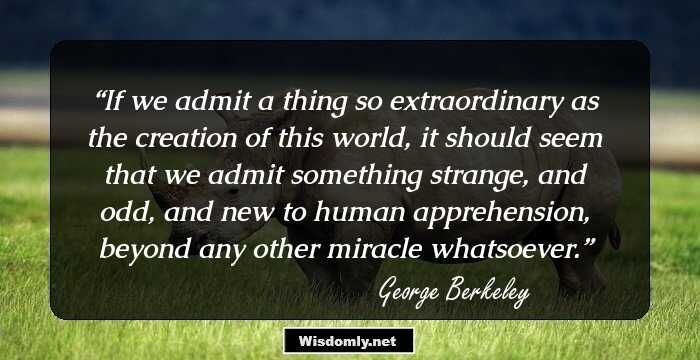
If we admit a thing so extraordinary as the creation of this world, it should seem that we admit something strange, and odd, and new to human apprehension, beyond any other miracle whatsoever.
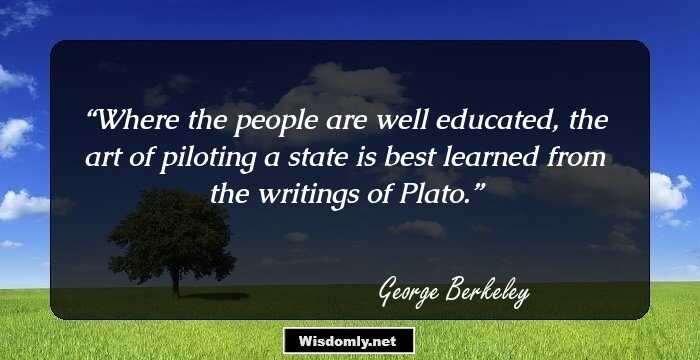
Where the people are well educated, the art of piloting a state is best learned from the writings of Plato.
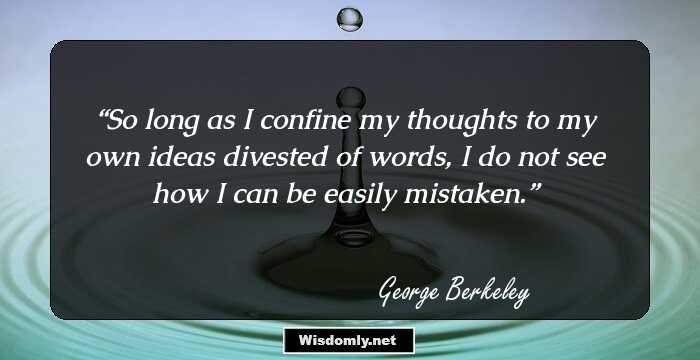
So long as I confine my thoughts to my own ideas divested of words, I do not see how I can be easily mistaken.
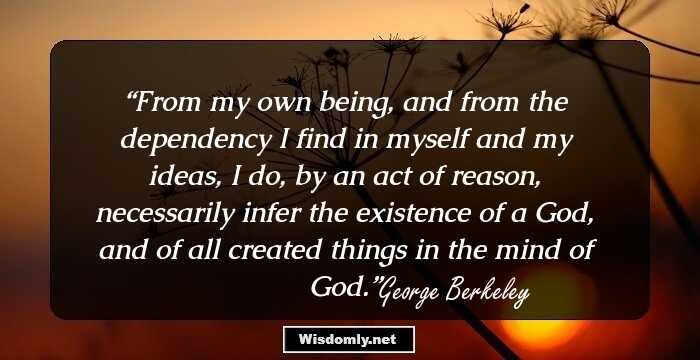
From my own being, and from the dependency I find in myself and my ideas, I do, by an act of reason, necessarily infer the existence of a God, and of all created things in the mind of God.
Upon the whole, I am inclined to think that the far greater part, if not all, of those difficulties which have hitherto amused philosophers, and blocked up the way to knowledge, are entirely owing to our selves. That we have first raised a dust, and then complain, we cannot see.
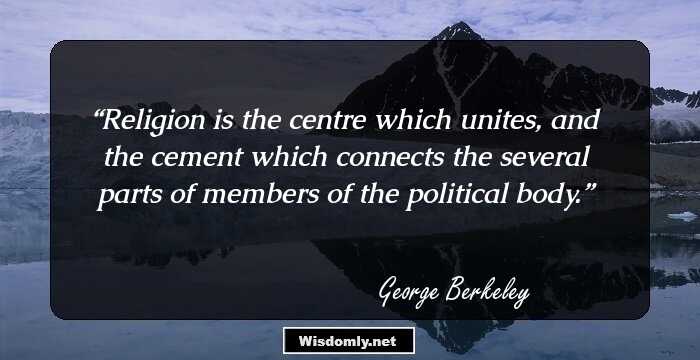
Religion is the centre which unites, and the cement which connects the several parts of members of the political body.
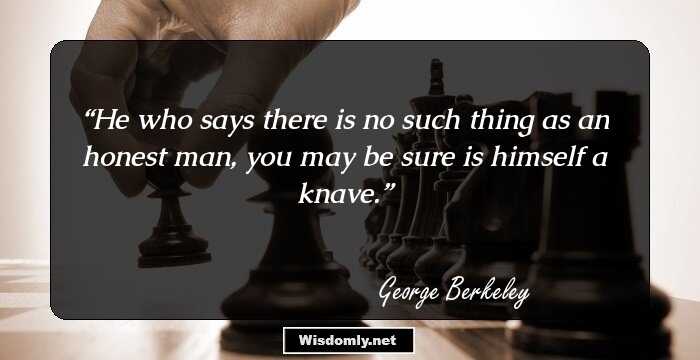
He who says there is no such thing as an honest man, you may be sure is himself a knave.
Man is an animal, formidable both from his passions and his reason; his passions often urging him to great evils, and his reason furnishing means to achieve them. To train this animal, and make him amenable to order; to inure him to a sense of justice and virtue; to withhold him from ill courses by fear, and encourage him in his duty by hopes; in short, to fashion and model him for society, hath been the aim of civil and religious institutions; and, in all times, the endeavor of good and wise men. The aptest method for attaining this end hath been always judged a proper education.
A man needs no arguments to make him discern and approve what is beautiful: it strikes at first sight, and attracts without a reason. And as this beauty is found in the shape and form of corporeal things, so also is there analogous to it a beauty of another kind, an order, a symmetry, and comeliness in the moral world. And as the eye perceiveth the one, so the mind doth by a certain interior sense perceive the other, which sense, talent, or faculty, is ever quickest and purest in the noblest minds.
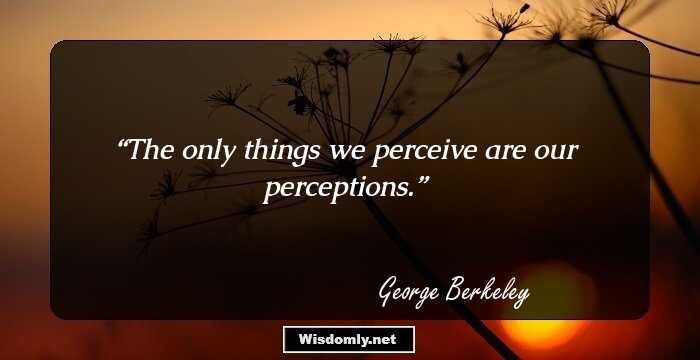
The only things we perceive are our perceptions.







